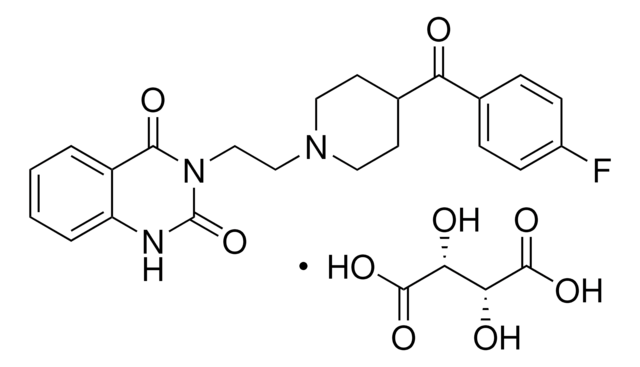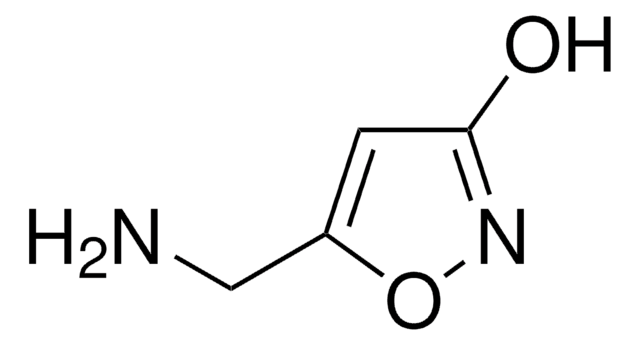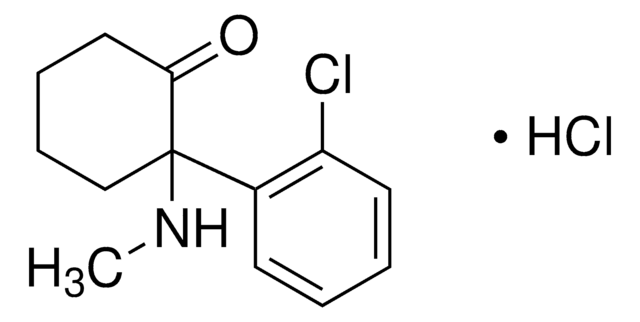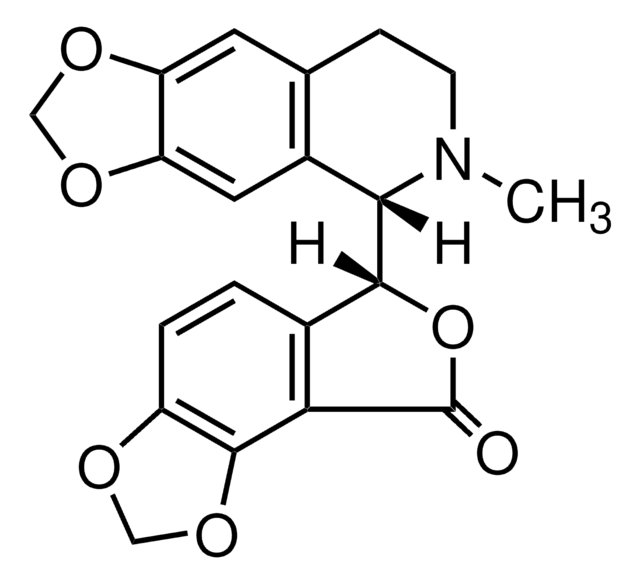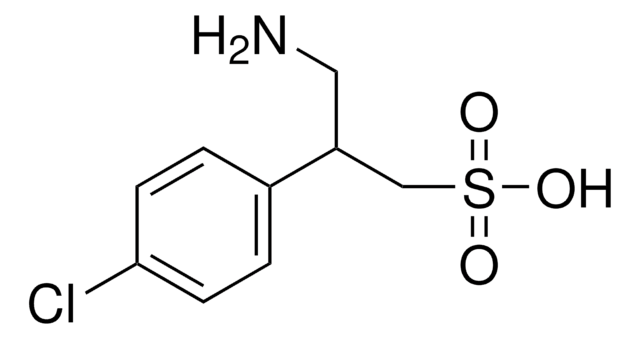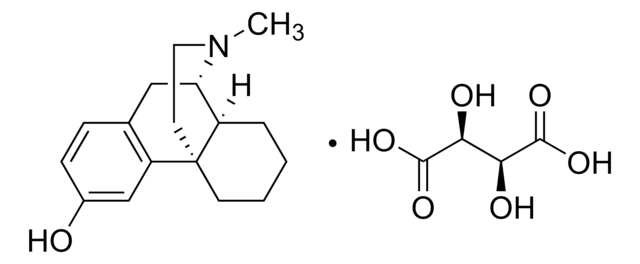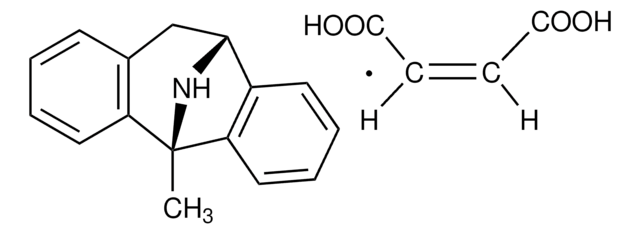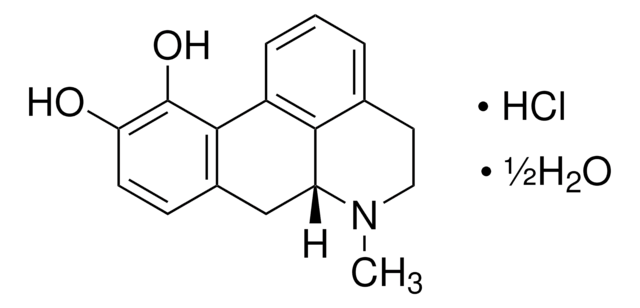E006
β-Carboline-3-carboxylic acid N-methylamide
Sinónimos:
β-CCA methylamide, FG-7142, N-Methyl-β-carboline-3-carboxamide
About This Item
Productos recomendados
formulario
solid
Nivel de calidad
color
light tan
solubilidad
DMSO: >10 mg/mL
H2O: insoluble
cadena SMILES
CNC(=O)c1cc2c(cn1)[nH]c3ccccc23
InChI
1S/C13H11N3O/c1-14-13(17)11-6-9-8-4-2-3-5-10(8)16-12(9)7-15-11/h2-7,16H,1H3,(H,14,17)
Clave InChI
QMCOPDWHWYSJSA-UHFFFAOYSA-N
Información sobre el gen
human ... BZRAP1(9256)
¿Está buscando productos similares? Visita Guía de comparación de productos
Acciones bioquímicas o fisiológicas
Características y beneficios
Precaución
Código de clase de almacenamiento
11 - Combustible Solids
Clase de riesgo para el agua (WGK)
WGK 3
Punto de inflamabilidad (°F)
Not applicable
Punto de inflamabilidad (°C)
Not applicable
Equipo de protección personal
Eyeshields, Gloves, type N95 (US)
Certificados de análisis (COA)
Busque Certificados de análisis (COA) introduciendo el número de lote del producto. Los números de lote se encuentran en la etiqueta del producto después de las palabras «Lot» o «Batch»
¿Ya tiene este producto?
Encuentre la documentación para los productos que ha comprado recientemente en la Biblioteca de documentos.
Nuestro equipo de científicos tiene experiencia en todas las áreas de investigación: Ciencias de la vida, Ciencia de los materiales, Síntesis química, Cromatografía, Analítica y muchas otras.
Póngase en contacto con el Servicio técnico